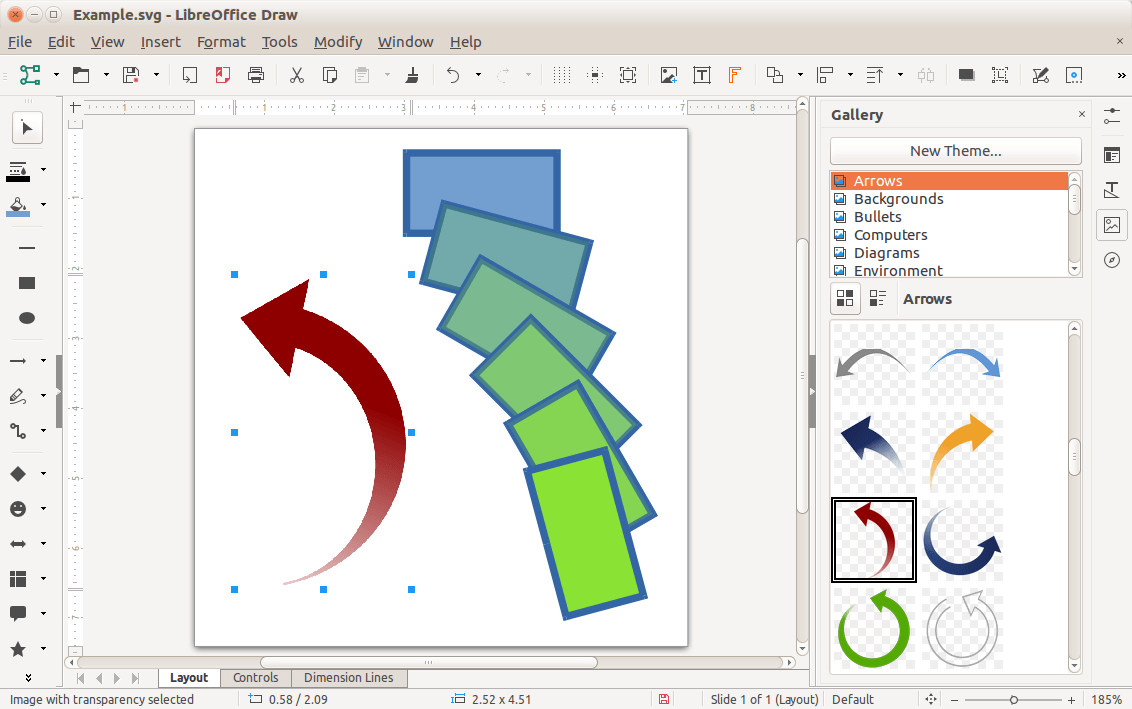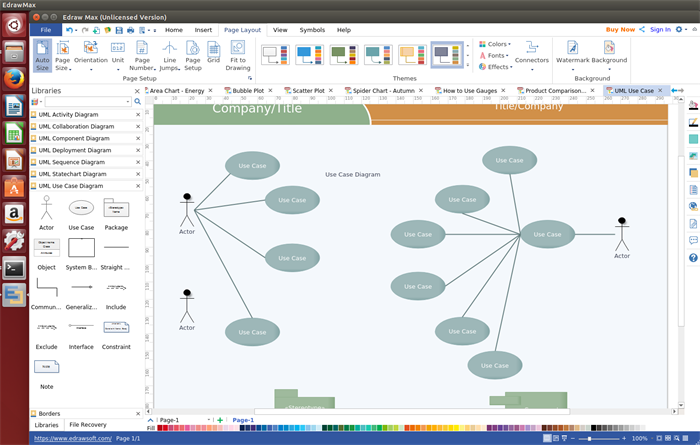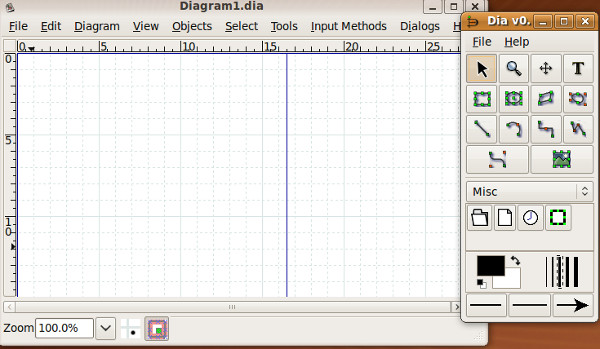
- #UML EDITOR UBUNTU INSTALL#
- #UML EDITOR UBUNTU UPGRADE#
- #UML EDITOR UBUNTU ANDROID#
- #UML EDITOR UBUNTU SOFTWARE#
I may need to give KDevelop 5 a try now that they are using clang for C++ parsing.Ĭode::Blocks never hit a sweet spot for me. It's ability to parse C++ expressions was horrible. I used to like KDevelop but learned to loathe it during the transition from 3 to 4. Eclipse handles all of it.įor simple sample code, gedit works fine. At both home and work I do development across multiple languages and platforms.
#UML EDITOR UBUNTU ANDROID#
I can move between C++, Python and Android (Java) development depending on the file I am editing. I can switch views and do database development with ease. At work I have a ton of Eclipse projects, start remote builds, do remote code execution and debugging.

I frequently cross-compile for ARM-bases systems and use OpenOCD to upload firmware and do remote debugging.
#UML EDITOR UBUNTU UPGRADE#
I cannot count the times that my ARM development plugins or Android development plugins were broken by an upgrade and required real work to get my projects functional again. The other downside to Eclipse is that it is rather modular, which can cause breakage at times. Eclipse can use a ton of memory, and getting everything set up and configured the way you want can take a lot of time. If you are writing code that spans multiple projects, requires remote debugging or anything beyond "editing code", you should be using an IDE like Eclipse.īut, like everything, there is a cost. If you are writing code with one or two files, CB is fine. Whether or not there are mistakes in the CB review, CB's capabilities pale in comparison to IDEs like Eclipse-CDT. program's output is shown in a popup console window but is not captured in the dialog window during debugging, when the program exits, the console window closes immediately so you cannot see when the program's output In conclusion, it is only usable for C/C++ beginners, you can use it only for tiny projects containing one or a few source code files, such as using the old Borland/Turbo C++ for programming competitions. No undo/redo history, cannot go to Nth undo/redo step in the history 10. smart indent function is not so smart: close bracket indent is not adjusted automatically upon a newline, in some cases, indent is not auto adjusted 9. during debugging, mouse hover over can display variable values only for basic types such as float/int/double, but not for STL containers (e.g., vector) watch window sometimes need to be opened manually every time, kind of buggy 8. closed projects is not shown in the workspace, kind of s-t-u-p-i-d. does not support nested macro expansion 6. cannot navigate forward and backward using Alt+Left and Alt+Right 5. cannot use Ctrl+Left click to go to declaration and definition 4.
#UML EDITOR UBUNTU INSTALL#
cannot change hotkeys, it uses ancient Turbo/Borland C++ hot key assignment, e.g., Ctrl+F9 to compile, you need to install addition plugin to change hotkey, this shows it is immature 3. cannot display data structure in a tree view, i.e., code outline 2. However, if you want to develop big projects such as Python or Moses, forget about it. The only advantage compared to Eclipse is that CodeBlocks is much faster to load and code. This review from source forge should explain it all: Visual studio has built-in UML diagrams for classes.
#UML EDITOR UBUNTU SOFTWARE#
On that point, it's convenient to use some diagramming software like dia, where one can draw UML diagrams, and have it create the classes and function stubs for you - this is independent of which IDE one uses or not.

Stecker werden an Formen geklebt und trennen sich nie voneinander.



 0 kommentar(er)
0 kommentar(er)
